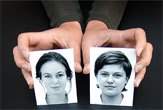
Get the world’s most fascinating discoveries delivered straight to your inbox.
You are now subscribed
Your newsletter sign-up was successful
Want to add more newsletters?

Delivered Daily
Daily Newsletter
Sign up for the latest discoveries, groundbreaking research and fascinating breakthroughs that impact you and the wider world direct to your inbox.

Once a week
Life's Little Mysteries
Feed your curiosity with an exclusive mystery every week, solved with science and delivered direct to your inbox before it's seen anywhere else.

Once a week
How It Works
Sign up to our free science & technology newsletter for your weekly fix of fascinating articles, quick quizzes, amazing images, and more

Delivered daily
Space.com Newsletter
Breaking space news, the latest updates on rocket launches, skywatching events and more!

Once a month
Watch This Space
Sign up to our monthly entertainment newsletter to keep up with all our coverage of the latest sci-fi and space movies, tv shows, games and books.

Once a week
Night Sky This Week
Discover this week's must-see night sky events, moon phases, and stunning astrophotos. Sign up for our skywatching newsletter and explore the universe with us!
Join the club
Get full access to premium articles, exclusive features and a growing list of member rewards.
Do you always get what you ask for? A new study finds that when you don't, you might not even notice the difference.
Swedish researchers showed a pair of female faces to 120 volunteers for 2 seconds and then asked them to choose which one they thought was more attractive. The researchers then asked the volunteers to explain their choice.
The trial was repeated 15 times for each volunteer, using different pairs of faces. but in three of the trials the faces were secretly switched after a decision had been made.
Surprisingly, not only were a large number of the volunteers oblivious to the switch when ultimately allowed to take a longer look at their choice, they were actually able to gave detailed explanations for why they preferred the face that, indeed, they had actually rejected.
It would be asking for an apple and then explaining exactly why you wanted the banana you got instead.
'She's radiant'
The researchers call the phenomenon "choice blindness."
Get the world’s most fascinating discoveries delivered straight to your inbox.
"She's radiant," gushed one male volunteer about a face he didn't choose. "I would rather have approached her at a bar than the other one. I like earrings!"
Another female volunteer said that the face she chose (which in fact she hadn't) looked nicer than the other.
Lars Hall, a researcher from Lund University, thinks the volunteers were sincere when giving their reports and somehow failed to notice the switch.
"'Confabulation' is perhaps a safe term to use," Hall said in an email interview. "That is, the [false] reports were constructed after the fact.'"
After the experiment, the volunteers were presented with a "hypothetical" scenario: Suppose they were involved in an experiment where the faces you chose were switched. Would they notice?
Doubly blind
Eighty-four percent of the volunteers said they would. The researchers called this "choice blindness blindness." When the volunteers were told the truth about how they had been duped, many expressed surprise and even disbelief.
The researchers don't yet know how or why choice blindness occurs, but they think it gets to the very heart of how we make decisions. Some of the most popular theories about decision-making assume that people will notice when their choices and the outcomes of those choices don't line up.
"But as our experiment shows, this is not always the case," Hall told LiveScience. "Therefore the concept of 'intention' needs to be reevaluated and scrutinized more closely."
Choice blindness experiments may also provide a way to study subjectivity and introspection, topics once considered by many scientists to be extremely difficult or even impossible to evaluate scientifically.
"If someone insists on knowing their own mind, it is very difficult to progress beyond this point," Hall said. "[But] by using choice blindness we can create a very particular—and very strange—situation in which we actually can say that someone is wrong despite the fact that they might vehemently claim to know their own mind."
The study is detailed in the Oct. 7 issue of the journal Science.
 Live Science Plus
Live Science Plus










